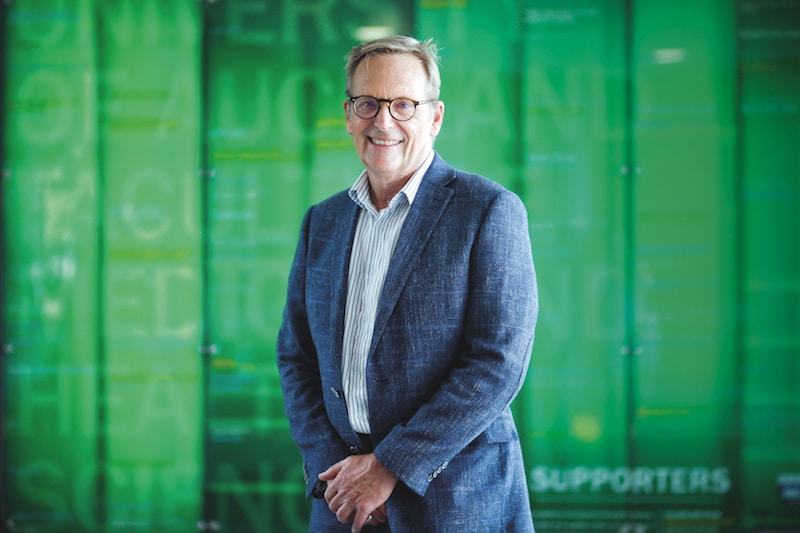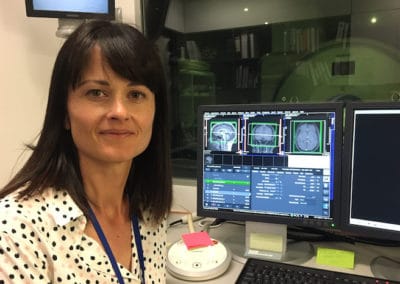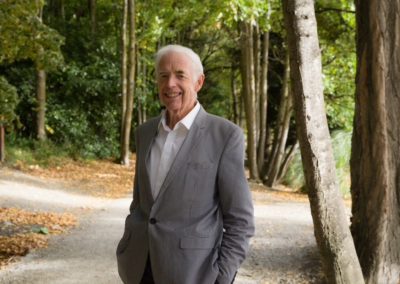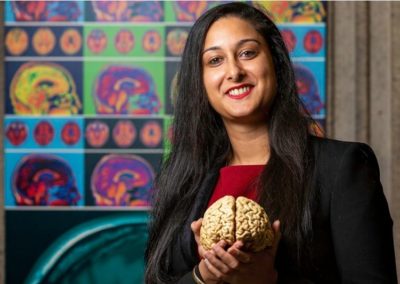THE World Health Organisation (WHO) estimates that 466 million people have disabling hearing loss. With that figure predicted to double by 2050, there’s a growing need to provide accessible ear health services for all. BRNZ Co-Director Professor Peter Thorne has been working towards this goal in the Pacific for a decade.
It started when Peter took up an appointment as Head of the School of Population Health at the University of Auckland. As part of this role, he visited the Fiji School of Medicine, and it was there he realised that, when it came to hearing loss and ear disease, the country was poorly serviced. He says, “After meeting with lots of health authorities there, it became clear that, beyond clinicians who regularly travelled from New Zealand to Fiji to do surgeries and fit hearing aids, there was very little in the way of established services. That didn’t seem right. With all the resources in NZ, I knew we could do better.”
One of the first priorities for Peter and his colleague, Associate Professor Judith McCool, was to understand the scale of the challenge. Working with several Pacific organisations, they and students Natasha Houghton and Michael Sanders carried out a ‘gap analysis’, into the prevalence of hearing loss and the provision of services across six Pacific countries (Cook Islands, Fiji, Niue, Samoa, Tokelau, and Tonga). They found that up to 11% of the population may live with a significant hearing impairment, and discussed the challenges of constrained resources, diverse geography, and a shortage of local expertise. In that same study, the team highlighted the need for an international collaborative effort, led by Pacific peoples, to establish and maintain hearing services for those living on the islands. “That was an important piece of research,” says Peter, recalling the experience. “But the reality is that those doing the work are incredibly stretched. It’s hard to establish something of that scale. The biggest thing we can do is continue; to help relieve the pressure, find resources, coordinate activities, make connections, whatever is needed.”
Around the same time, Peter starting working with the WHO, through Dr Shelly Chadha, who oversees the organisation’s programme on deafness and hearing loss. “Our Pacific partners have turned that relationship into some fairly significant initiatives which are now building lots of capacity and capability within the Pacific,” Peter says. One of the organisations leading this effort is the Secretariat of the Pacific Community (SPC). In 2015, they had developed a program to strengthen clinical partnerships and services in the Pacific region. Peter and PhD student Liz Holt were invited to join one of the associated groups – the Pacific ENT and Audiology Group (PENTAG). “This has grown into a huge program, thanks to the leadership of people like Berlin Kafoa and Oh Chunghyeon in Fiji, and Sepiuta Lopati and Sione Pifeleti from Tonga and Samoa, respectively.” WHO is currently trialling some new training manuals in the region, because, according to Peter “they see the Pacificas the perfect place to develop high-quality, community programmes in ear health. There’s an engine room there now, and it’s being driven by Pacific people themselves. It’s exciting.”
Peter is also heavily involved in work programs closer to home. With Dr Ravi Reddy, a public health specialist now at Massey University, he’s been looking at the attitudes of older, NZ-based Pacific Islanders to their hearing impairments. And the Whānau Pathfinder program, developed through a BRNZ-funded research collaboration with Ravi and Hearing Auckland’s Cynthia Brown-Mendes (Ngāti Whātua and Orakei and Kaipara Marae), he is looking at hearing loss from a Māori perspective. Guided by the Kaupapa Māori research framework, which emphasises that research should be by, with, and for Māori, this project has taken more than a hundred people from screenings through to having hearing aids fitted. “This has been led by Cynthia who has been absolutely instrumental in its success,” says Peter. “She’s been the one building connections with Māori in West Auckland and the Kaipara.”
“Hearing loss has enormous implications for older people,” Peter says. “It can reduce socialization, isolate people from their whānau, and it contributes to cognitive decline. We hope that by developing a better understanding of Māori perceptions of hearing loss, we can create a clearer, more equitable route for them to access hearing health services.”



